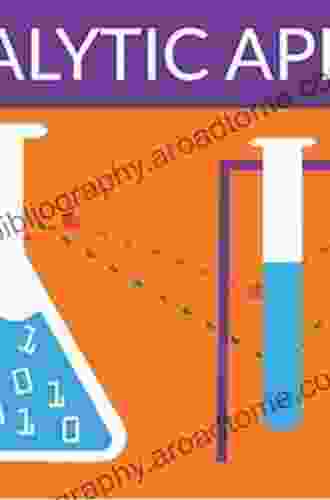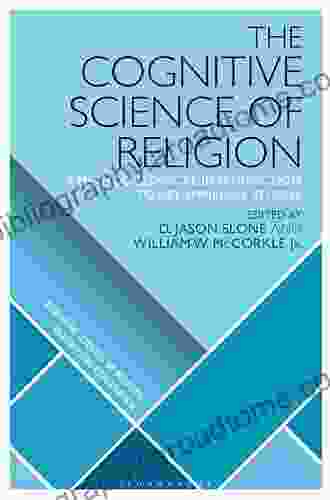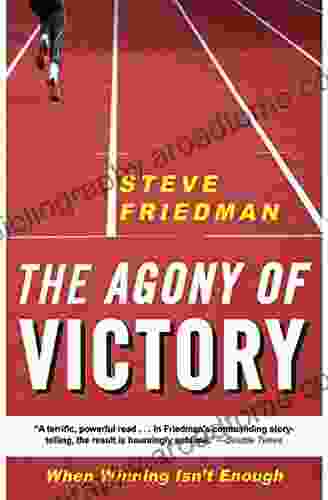Integrating the Participants' Perspective in the Study of Language and Cognition

Language is a fundamental part of human cognition. It allows us to communicate with others, express our thoughts and feelings, and learn about the world around us. However, traditional approaches to the study of language and cognition have often focused on the objective analysis of language data, with little attention paid to the subjective experiences of the participants involved in language use.
In recent years, there has been a growing recognition of the importance of integrating the participants' perspective in the study of language and cognition. This approach, known as participant-oriented research, seeks to understand the cognitive processes involved in language use from the perspective of the participants themselves. This can be done through a variety of methods, such as interviews, questionnaires, and diary studies.
5 out of 5
| Language | : | English |
| File size | : | 1925 KB |
| Text-to-Speech | : | Enabled |
| Enhanced typesetting | : | Enabled |
| Print length | : | 225 pages |
| Screen Reader | : | Supported |
Benefits of integrating the participants' perspective
There are a number of benefits to integrating the participants' perspective in the study of language and cognition. These benefits include:
- A deeper understanding of the cognitive processes involved in language use. By understanding the participants' perspective, researchers can gain a deeper understanding of the cognitive processes involved in language use. This can help to identify the factors that contribute to successful language learning and use, and can also inform the development of more effective language teaching and learning methods.
- Improved effectiveness of language teaching and learning. Integrating the participants' perspective into language teaching and learning can help to improve the effectiveness of these activities. By understanding the learning process from the students' perspective, teachers can tailor their instruction to meet the students' individual needs and learning styles. This can help students to learn more effectively and efficiently.
- A more holistic understanding of language and cognition. Integrating the participants' perspective into the study of language and cognition can help to create a more holistic understanding of these phenomena. By considering the subjective experiences of the participants, researchers can gain a better understanding of the role that language plays in human thought and social interaction.
How to integrate the participants' perspective
There are a number of ways to integrate the participants' perspective into the study of language and cognition. These methods include:
- Interviews. Interviews are a great way to collect qualitative data from participants about their experiences with language and cognition. Interviews can be conducted one-on-one or in groups, and can be used to explore a wide range of topics, such as the participants' thoughts and feelings about language, their language learning experiences, and their use of language in different contexts.
- Questionnaires. Questionnaires are a more structured way to collect data from participants about their experiences with language and cognition. Questionnaires can be used to collect both quantitative and qualitative data, and can be used to explore a wide range of topics, such as the participants' language proficiency, their attitudes towards language learning, and their use of language in different contexts.
- Diary studies. Diary studies are a great way to collect longitudinal data from participants about their experiences with language and cognition. Diary studies involve asking participants to keep a written record of their thoughts and experiences over a period of time. This data can be used to explore a wide range of topics, such as the participants' language development, their use of language in different contexts, and their changing attitudes towards language.
Integrating the participants' perspective in the study of language and cognition can yield a number of benefits, including a deeper understanding of the cognitive processes involved in language use, improved effectiveness of language teaching and learning, and a more holistic understanding of language and cognition. By considering the subjective experiences of the participants, researchers can gain a better understanding of the role that language plays in human thought and social interaction.
5 out of 5
| Language | : | English |
| File size | : | 1925 KB |
| Text-to-Speech | : | Enabled |
| Enhanced typesetting | : | Enabled |
| Print length | : | 225 pages |
| Screen Reader | : | Supported |
Do you want to contribute by writing guest posts on this blog?
Please contact us and send us a resume of previous articles that you have written.
 Book
Book Novel
Novel Page
Page Chapter
Chapter Text
Text Story
Story Genre
Genre Reader
Reader Library
Library Paperback
Paperback E-book
E-book Magazine
Magazine Newspaper
Newspaper Paragraph
Paragraph Sentence
Sentence Bookmark
Bookmark Shelf
Shelf Glossary
Glossary Bibliography
Bibliography Foreword
Foreword Preface
Preface Synopsis
Synopsis Annotation
Annotation Footnote
Footnote Manuscript
Manuscript Scroll
Scroll Codex
Codex Tome
Tome Bestseller
Bestseller Classics
Classics Library card
Library card Narrative
Narrative Biography
Biography Autobiography
Autobiography Memoir
Memoir Reference
Reference Encyclopedia
Encyclopedia Eric Stein
Eric Stein Ellen Potter
Ellen Potter Paul Osterman
Paul Osterman Eugene M Abroms
Eugene M Abroms Eric Butler
Eric Butler Giuseppe Perale
Giuseppe Perale Kelly Sullivan Walden
Kelly Sullivan Walden Raphael Kellman
Raphael Kellman Sally A Goldman
Sally A Goldman Michael G Smith
Michael G Smith Farhan Iqbal
Farhan Iqbal Eugenio Iannone
Eugenio Iannone Fanny Pichon
Fanny Pichon William Buckholz
William Buckholz Emmanuel Ezem
Emmanuel Ezem Emad N Farag
Emad N Farag Francesco Chiappelli
Francesco Chiappelli F Hadland Davis
F Hadland Davis Erik Stensland
Erik Stensland James A Dinardo
James A Dinardo
Light bulbAdvertise smarter! Our strategic ad space ensures maximum exposure. Reserve your spot today!

 Ken SimmonsUnlock the Transformative Power of "50 Ingredients To Transform Your Life And...
Ken SimmonsUnlock the Transformative Power of "50 Ingredients To Transform Your Life And... Stephen FosterFollow ·9.6k
Stephen FosterFollow ·9.6k John Dos PassosFollow ·13.9k
John Dos PassosFollow ·13.9k Jonathan HayesFollow ·12k
Jonathan HayesFollow ·12k Carson BlairFollow ·7.6k
Carson BlairFollow ·7.6k Anthony WellsFollow ·8.3k
Anthony WellsFollow ·8.3k Ed CooperFollow ·13.6k
Ed CooperFollow ·13.6k Galen PowellFollow ·7.9k
Galen PowellFollow ·7.9k Louis HayesFollow ·14.6k
Louis HayesFollow ·14.6k

 Troy Simmons
Troy SimmonsStories From The Life Of Baha: A Must-Read For Spiritual...
Discover the Inspiring Teachings and Enriching...

 Wesley Reed
Wesley ReedDuke Review of MRI Principles: Case Review - Your Gateway...
Unveiling the Essence...

 Ralph Waldo Emerson
Ralph Waldo EmersonThe Big Book of NFTs: Your Ultimate Guide to the Digital...
In the rapidly evolving world of digital...

 Jason Hayes
Jason HayesUnveiling the Labyrinth: The Cheat Sheet Novel and its...
In the realm...
5 out of 5
| Language | : | English |
| File size | : | 1925 KB |
| Text-to-Speech | : | Enabled |
| Enhanced typesetting | : | Enabled |
| Print length | : | 225 pages |
| Screen Reader | : | Supported |














